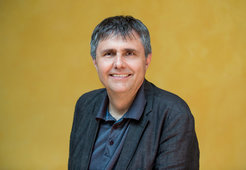Change of Managing Director
Peter Fratzl takes over for two years
In accordance with the rotation principle, physicist Professor Peter Fratzl will hold the position as Managing Director at the Max Planck Institute of Colloids and Interfaces (MPICI) for two years, starting on January 1, 2021. He replaces the chemist and biochemist Professor Peter Seeberger.

The scientific and administrative management of the Max Planck Institute of Colloids and Interfaces is subject to a board of directors consisting of four directors. One of the four institute directors is appointed to this office from the four-member board of directors on a rotating basis for two years. From January 1, 2021 to December 31, 2022, Peter Fratzl will now hold the office.
Since 2003, Peter Fratzl has headed the "Biomaterials" department at the Max Planck Institute of Colloids and Interfaces, which currently consists of six research groups. His research focuses include the investigation of the relationships between the (hierarchical) structure and the physical properties of biological and biomimetic materials. He is one of the pioneers in this field. Fratzl studies natural materials such as wood, insect shells, mussel shells, protein fibers, and bones. On the latter, he conducts basic research as well as clinically oriented research to gain new insights into osteoporosis and bone regeneration. Fratzl’s interests in the interdisciplinary fields of cultural studies and design complement his research. To answer questions relevant to biology, medicine, materials science, engineering, and humanities, the Department of Biomaterials uses techniques and methods largely derived from physics and chemistry.
Peter Fratzl is author and co-author of more than 600 scientific publications in journals and books. He is the recipient of the Leibniz Research Award (2010), honorary doctor of the University of Montpellier, France. Fratzl is also a member of the following academies: Austrian Academy of Sciences, Berlin-Brandenburg Academy of Sciences, Mainz Academy of Sciences and Literature, and the German Academy of Science and Engineering.
